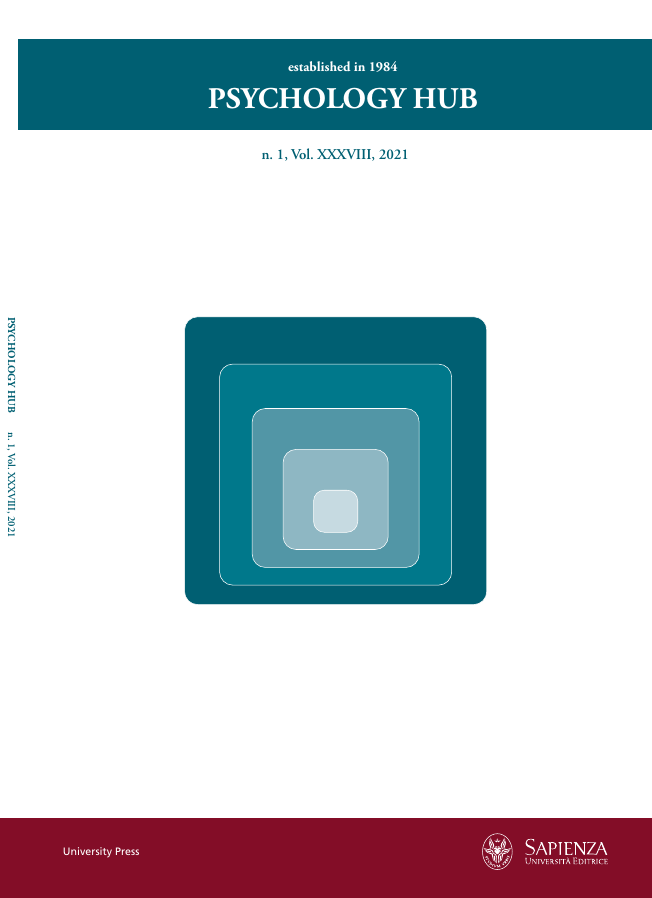First COVID-19 wave in Italy: coping strategies for the prevention and prediction of burnout syndrome (BOS) in voluntary psychologists employed in telesupport
DOI:
https://doi.org/10.13133/2724-2943/17435Keywords:
Psychology, Coping strategies, Burnout, Covid-19. Maslach Burnout Inven- tory, Cope-NVI-25Abstract
Introduction. The spread of the SARS-CoV-2 coronavirus and the pathology resulting from the infection, declared a pandemic on 11 March 2020, has strongly impacted the psychological health of the population. Italy was the first Western country to show significant signs of a widespread epidemic and to activate severe restrictive measures (national lockdown), with mental health consequences in the population. The National Council of the Order of Psychologists, adapting to the decree of the President of the Council of Ministers of the Italian Government, encouraged psychological support in telematic (by telephone or online) form. To respond to this emergency, several Italian psychologists activated listening desks, applying national and international guidelines on telepsychology. As part of the help profession, psychologists can develop burnout syndrome (BOS). The research hypotheses underlying this work are to investigate which are the most effective/dysfunctional coping styles in dealing with the onset of BOS and to analyse the differences between volunteer and non-volunteer psychologists.
Method. Using a non-probability convenience sampling, 468 participants were recruited through an online survey, of which 77 were male (16.5%) and 391 female (83.5%), with an average age of 40.95 years (SD = 8.98) and an age range from 26 to 72. To evaluate the three dimensions of burnout, the Maslach Burnout Inventory - Italian Version was administered. To evaluate coping strategies, the new Italian version of the Coping Orientation to the Problems Experienced Inventory (COPE-NVI-25) was administered. Correlations, MANOVA and regression were applied.
Results. Of the sample, 16.9% (79) had high levels in all three BO measures, while in the volunteer group alone, the figure increased to 17.6%. MANOVA highlights a statistical significance between volunteers and non-volunteers for Depersonalization but no gender difference in the development of BOS. Regression analysis highlights that Positive Attitude and Social Support strategies are those to focus on to prevent and contain the onset of BOS. In contrast, Orientation to the Problem and Avoidance Strategies predict the development of the syndrome. The only coping style which does not reach any significance level in all BOS dimensions is Transcendent Orientation.
Published
How to Cite
Issue
Section
License
Copyright (c) 2021 Psychology Hub

This work is licensed under a Creative Commons Attribution-NonCommercial-ShareAlike 4.0 International License.





